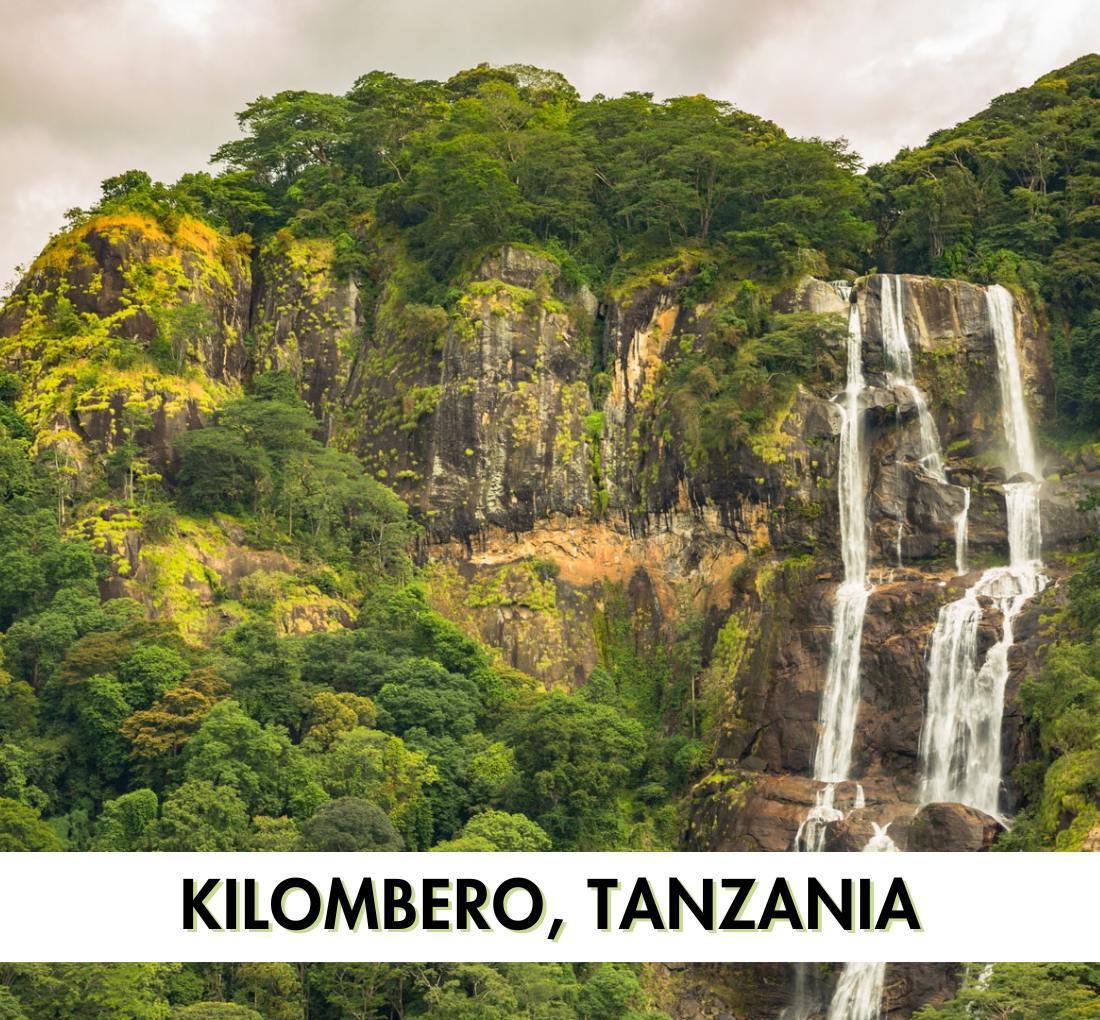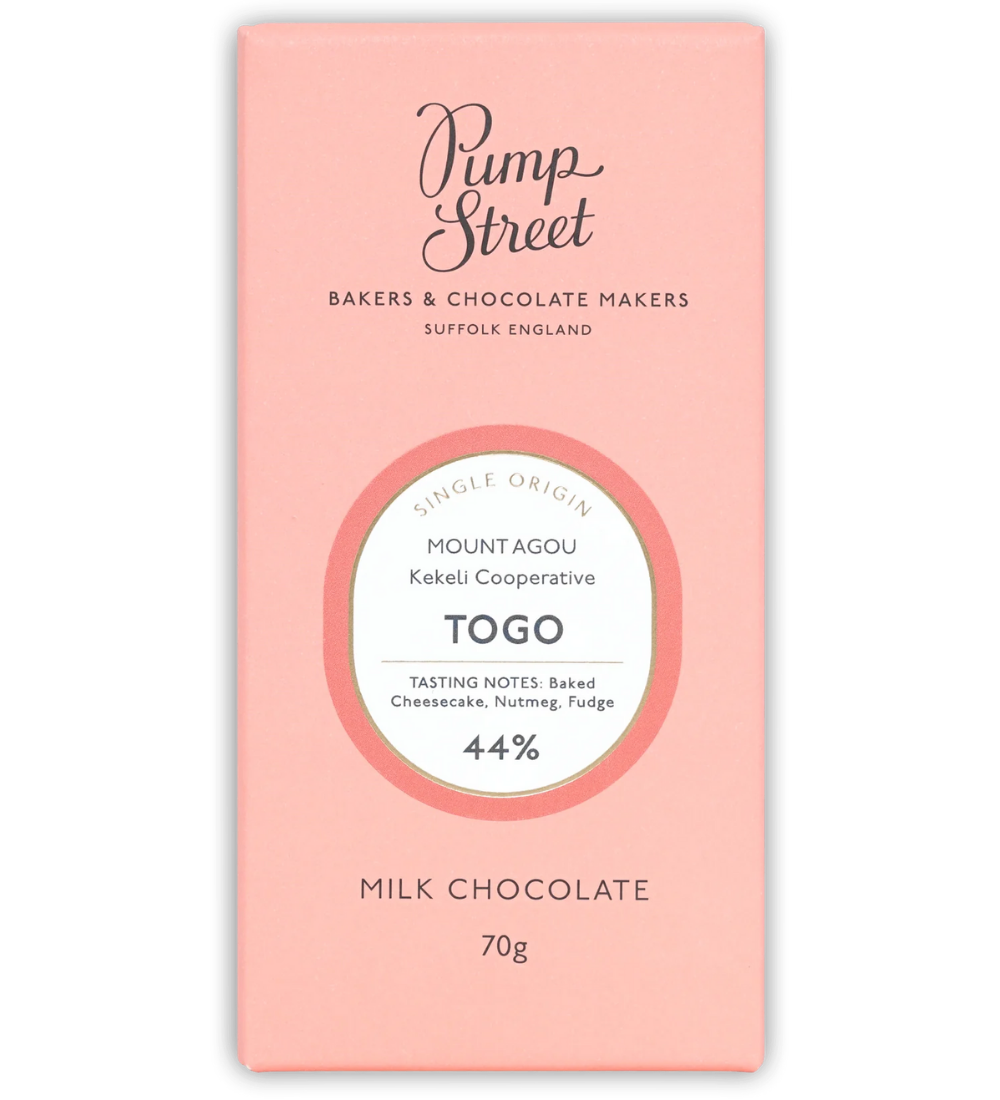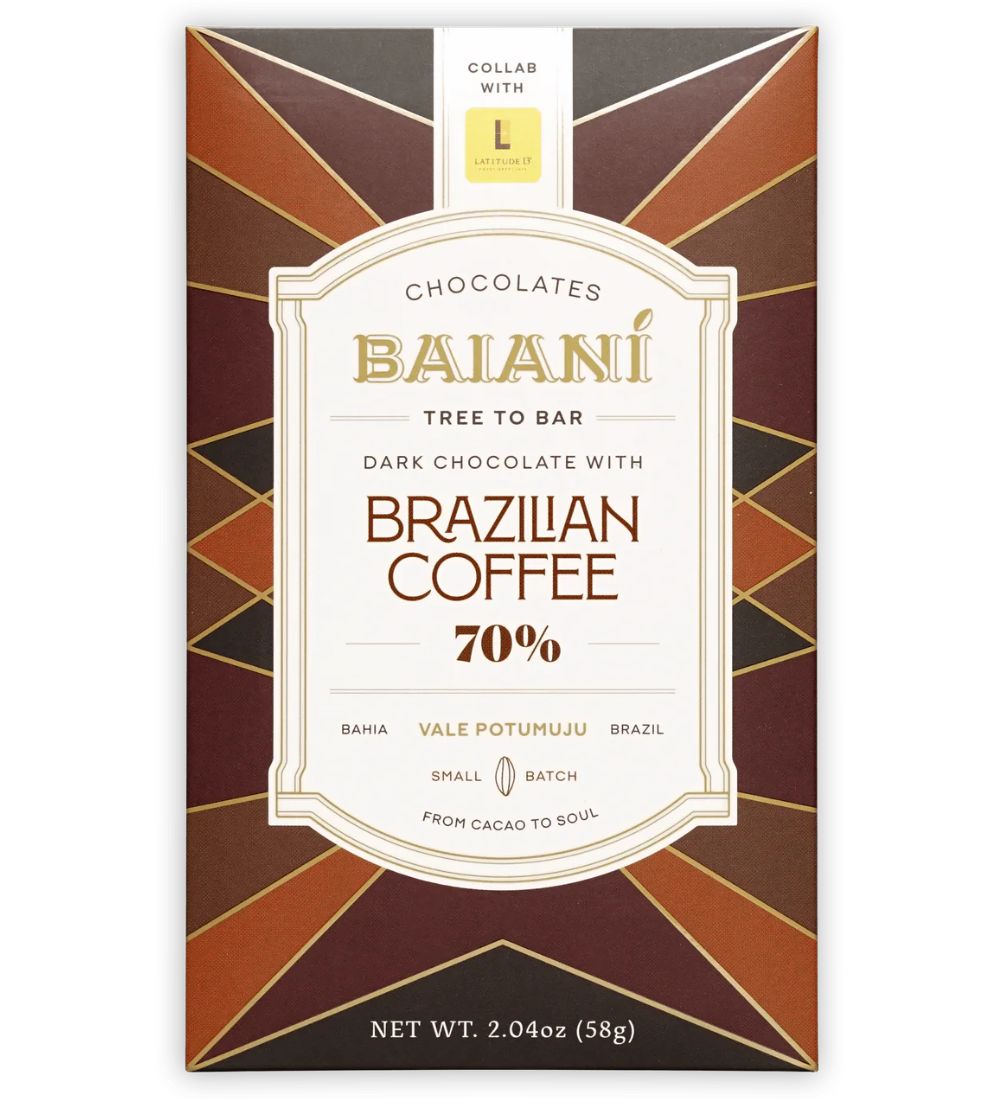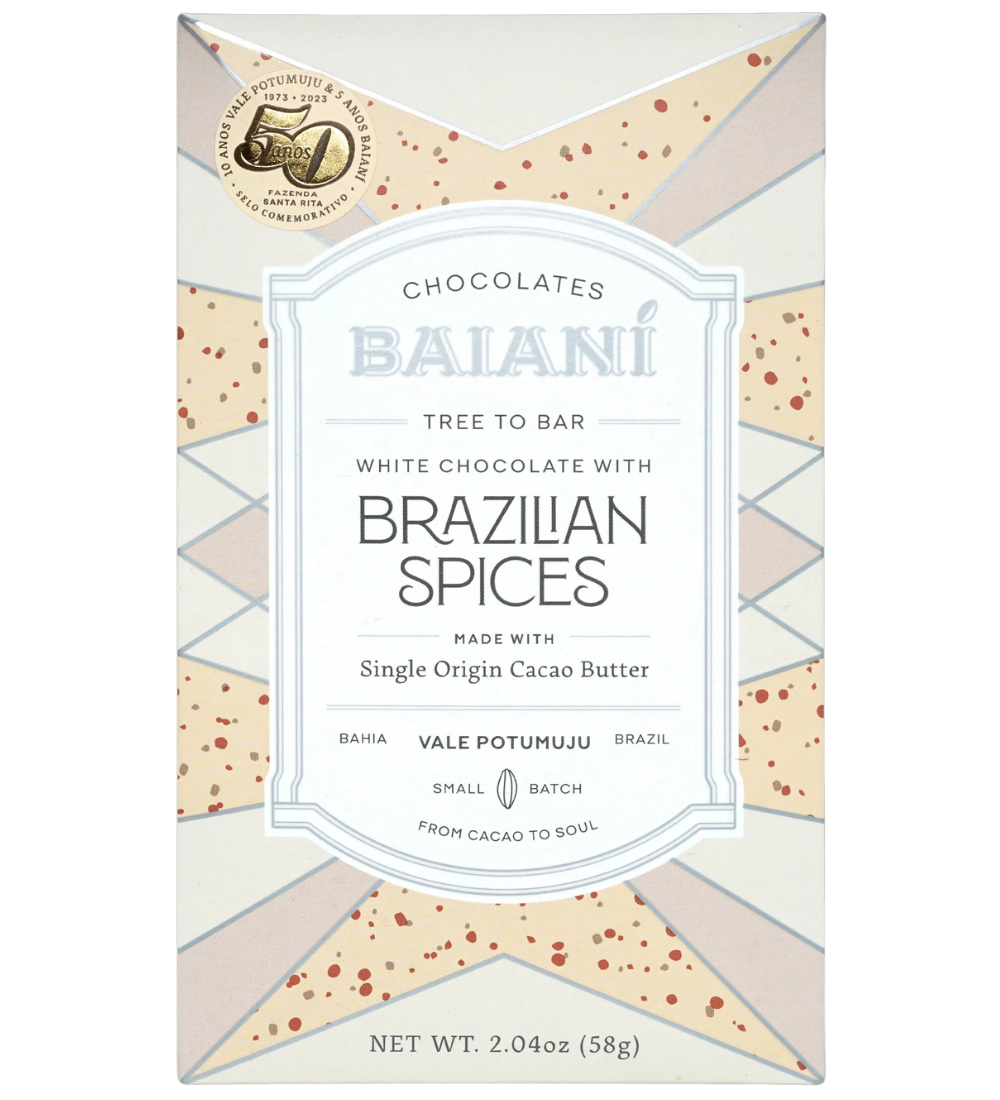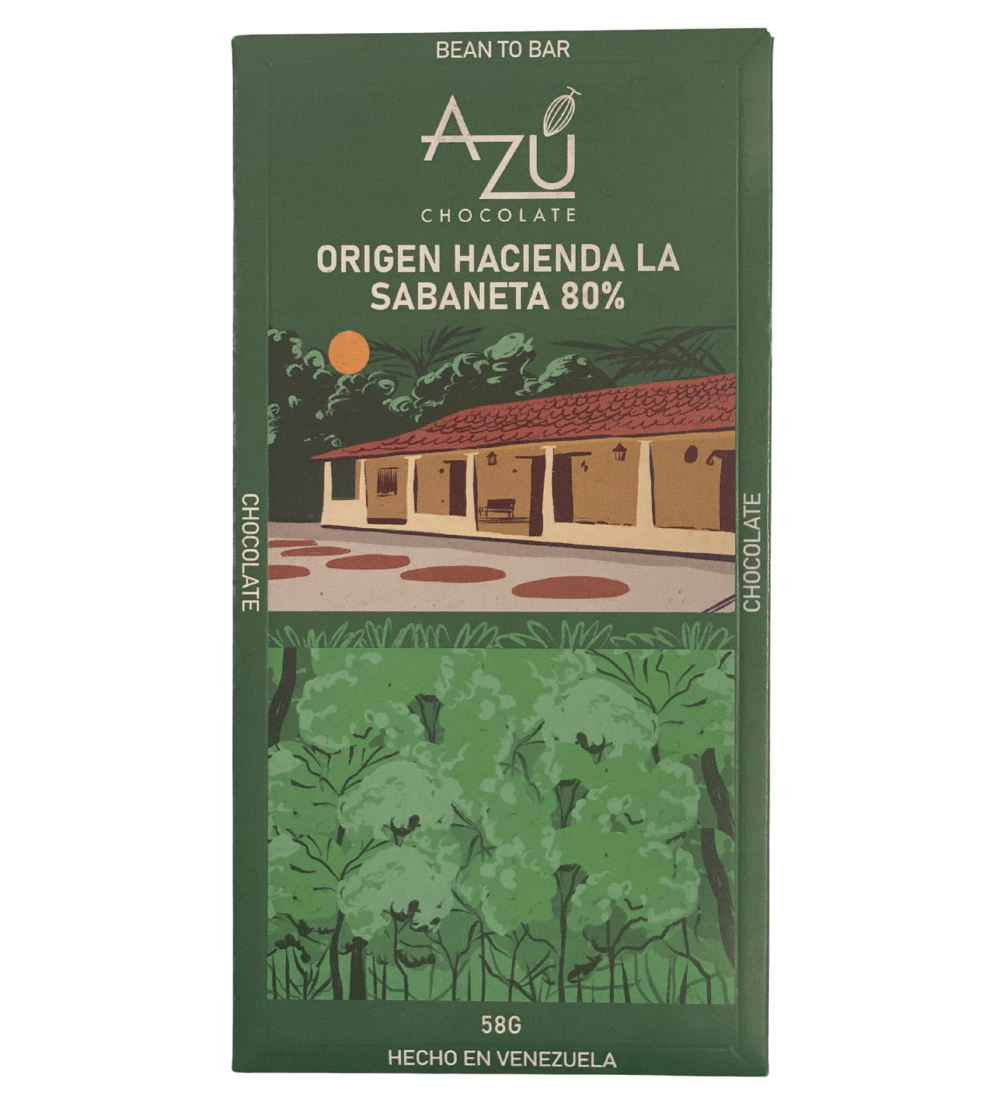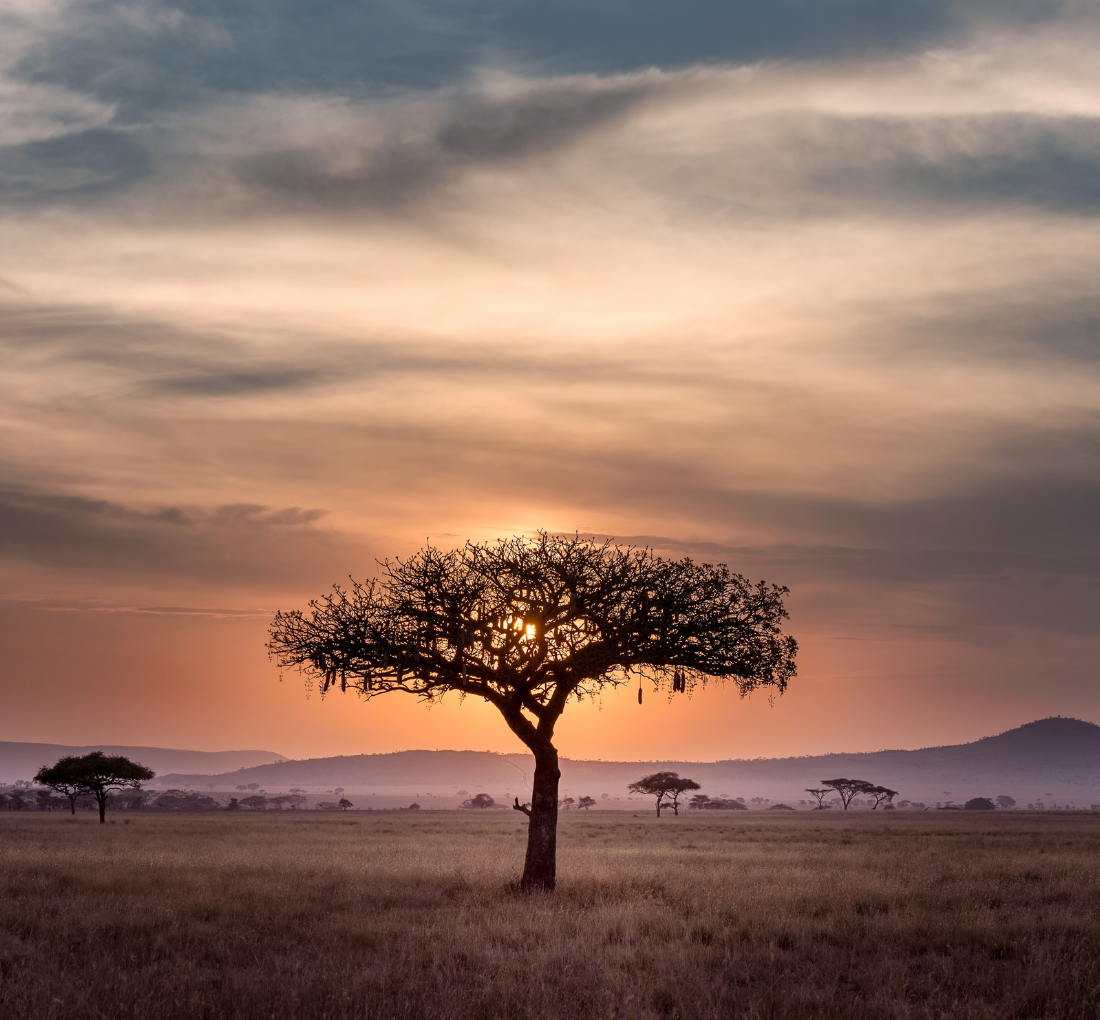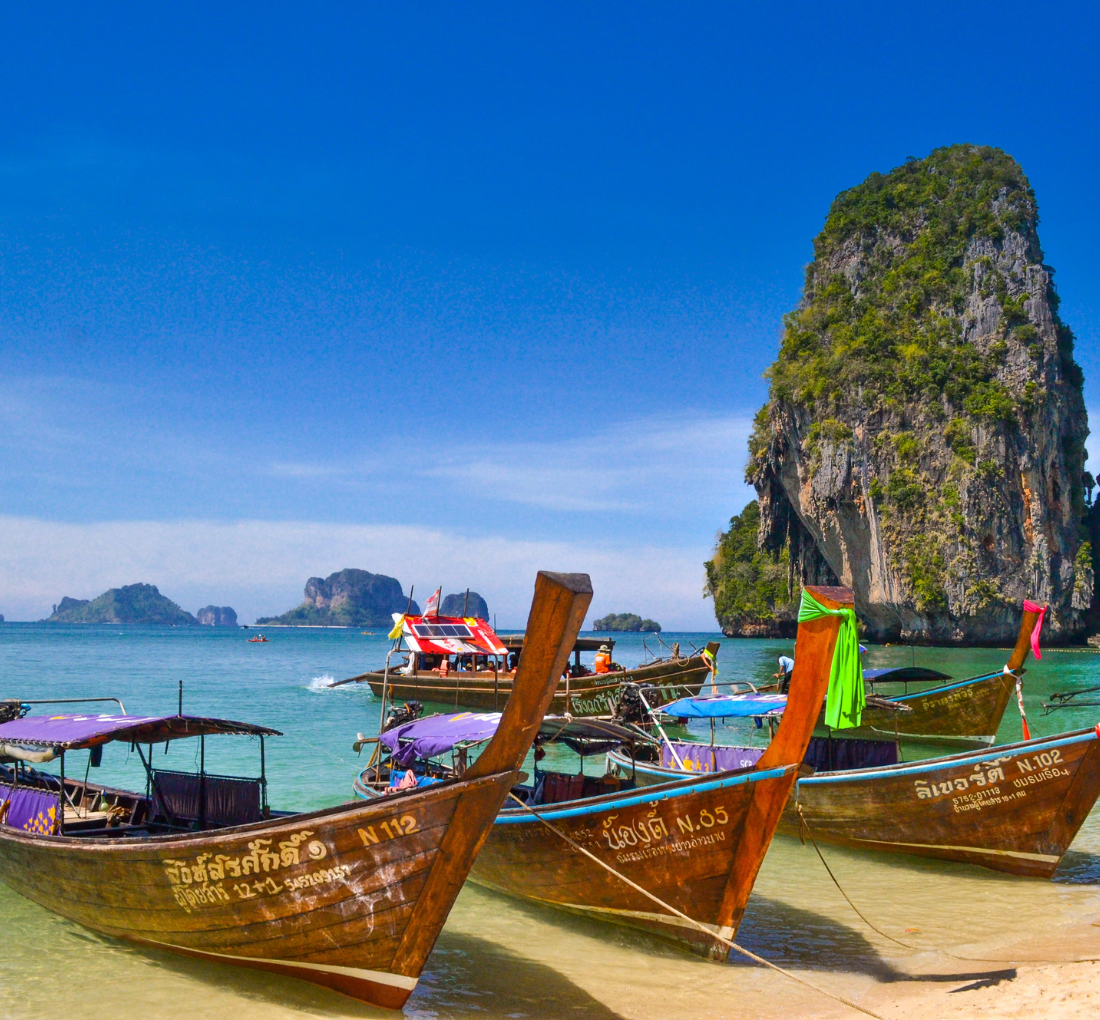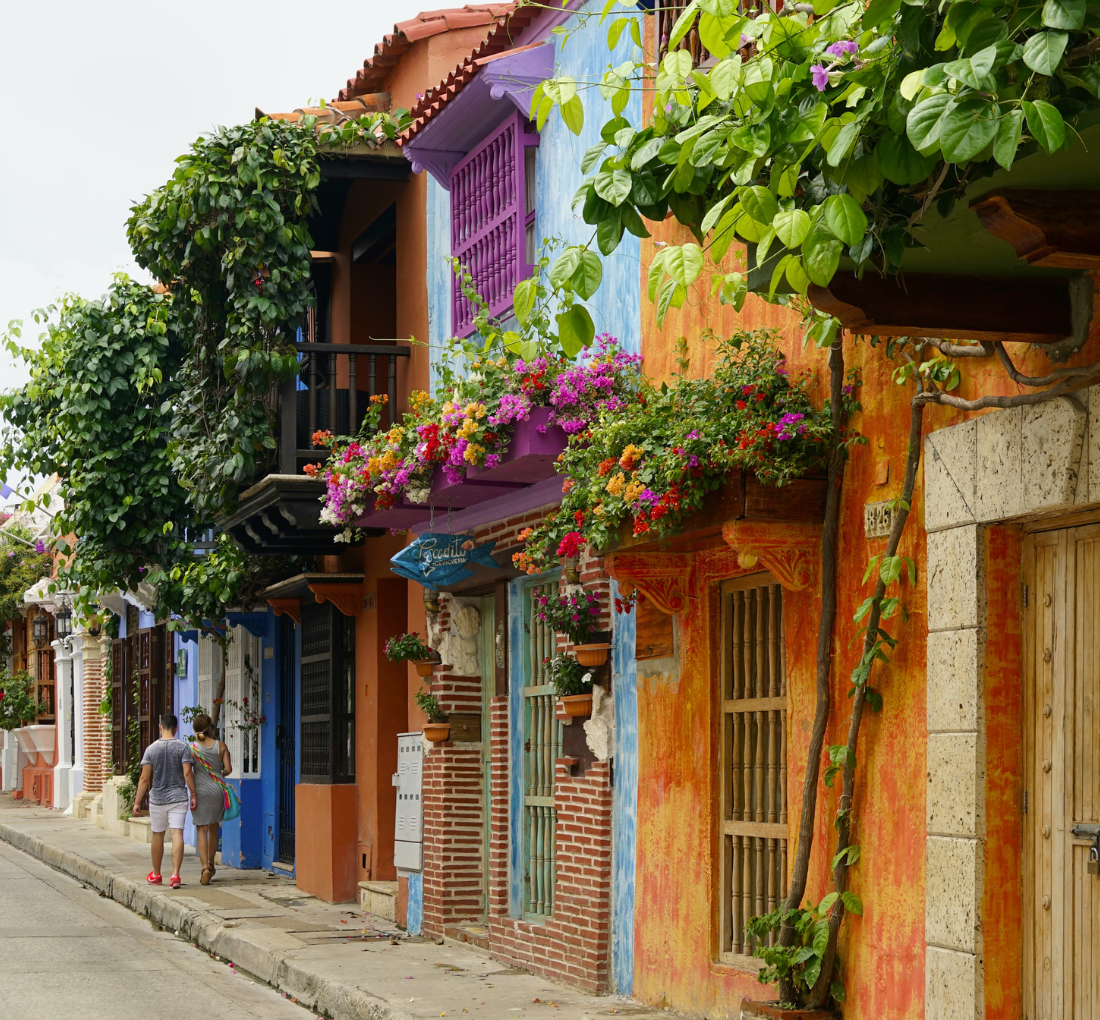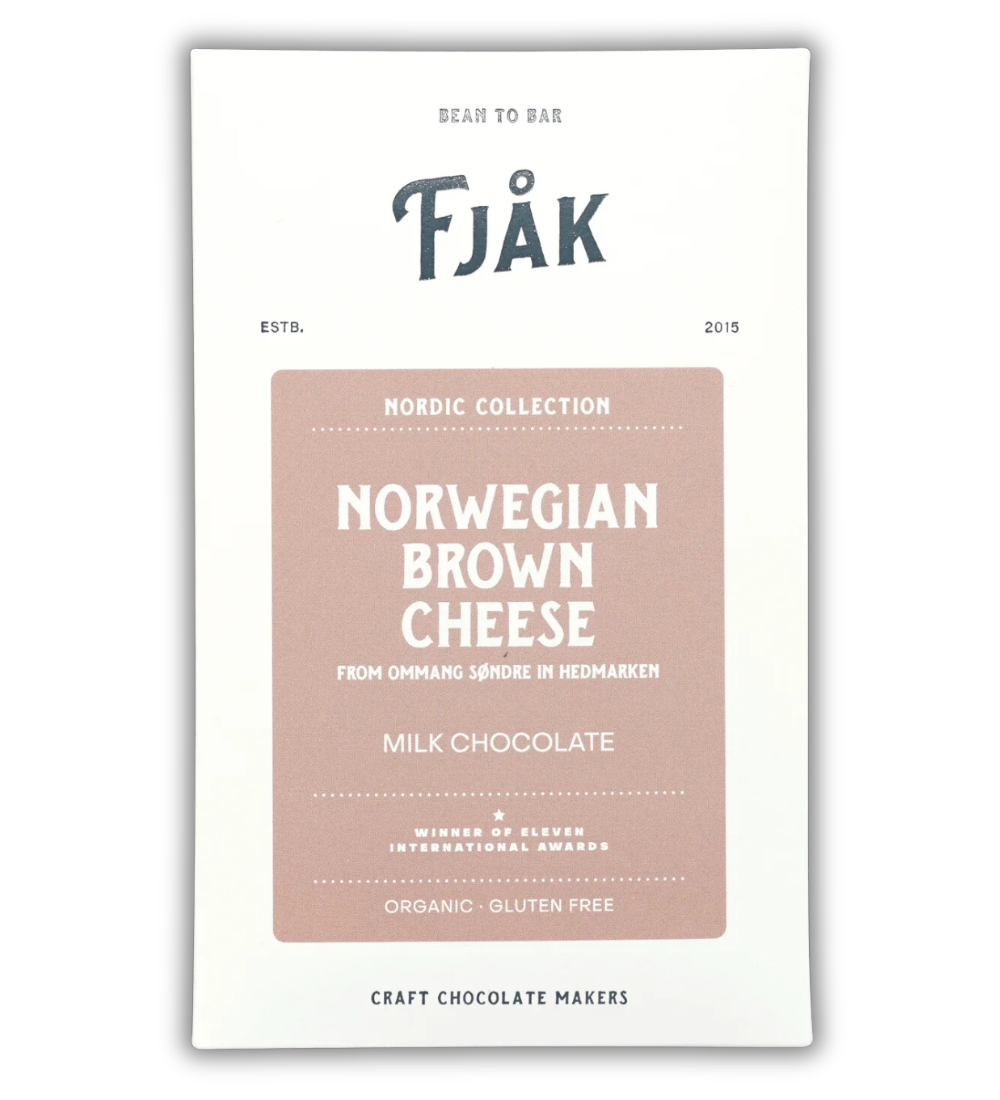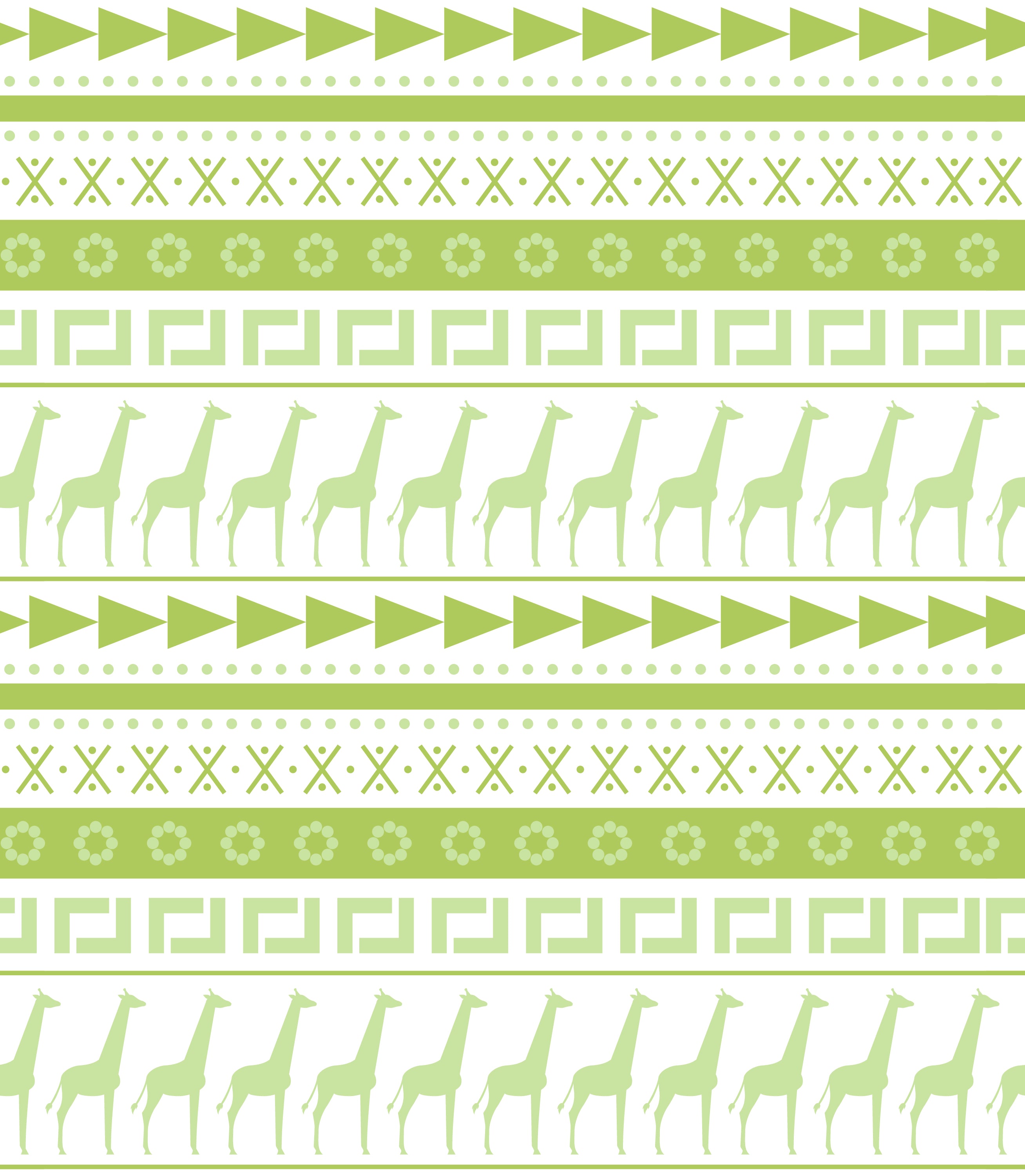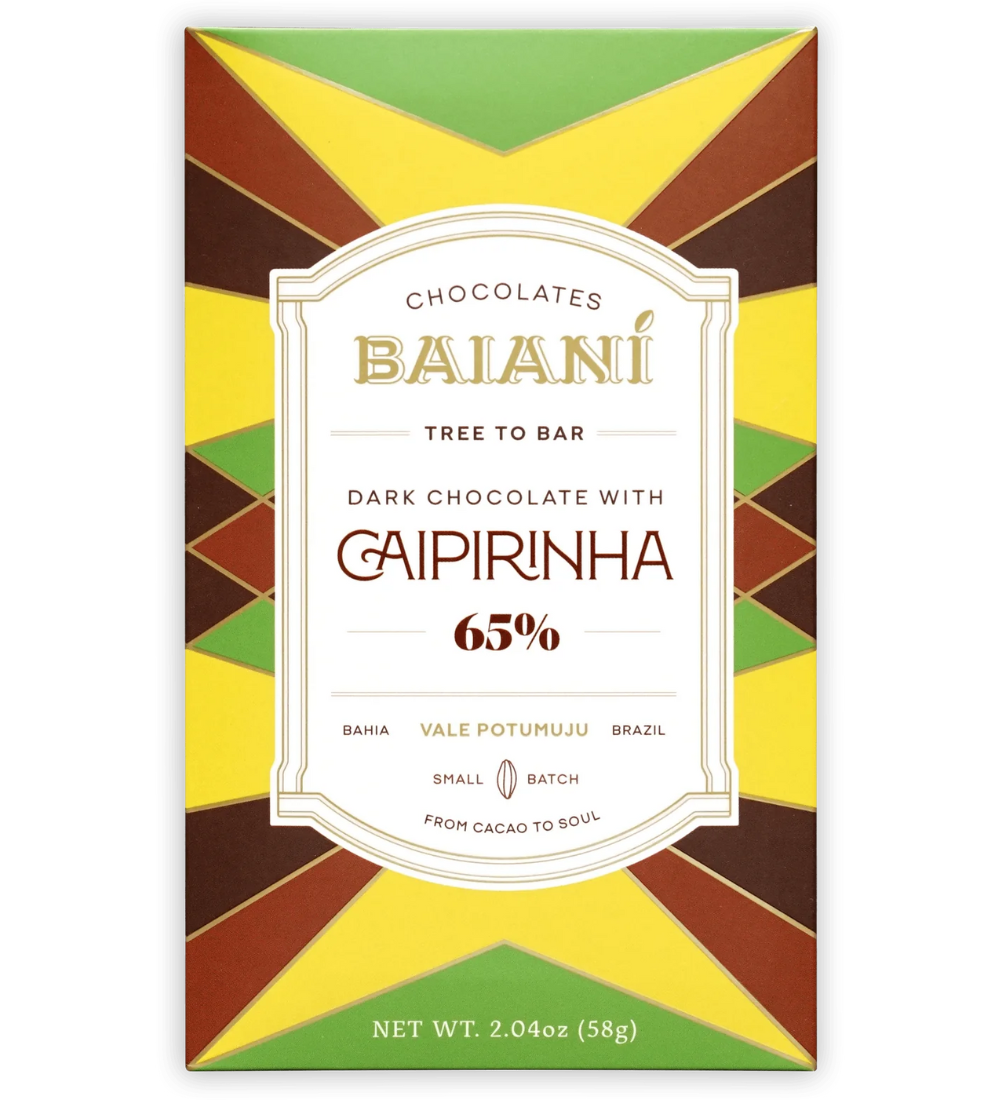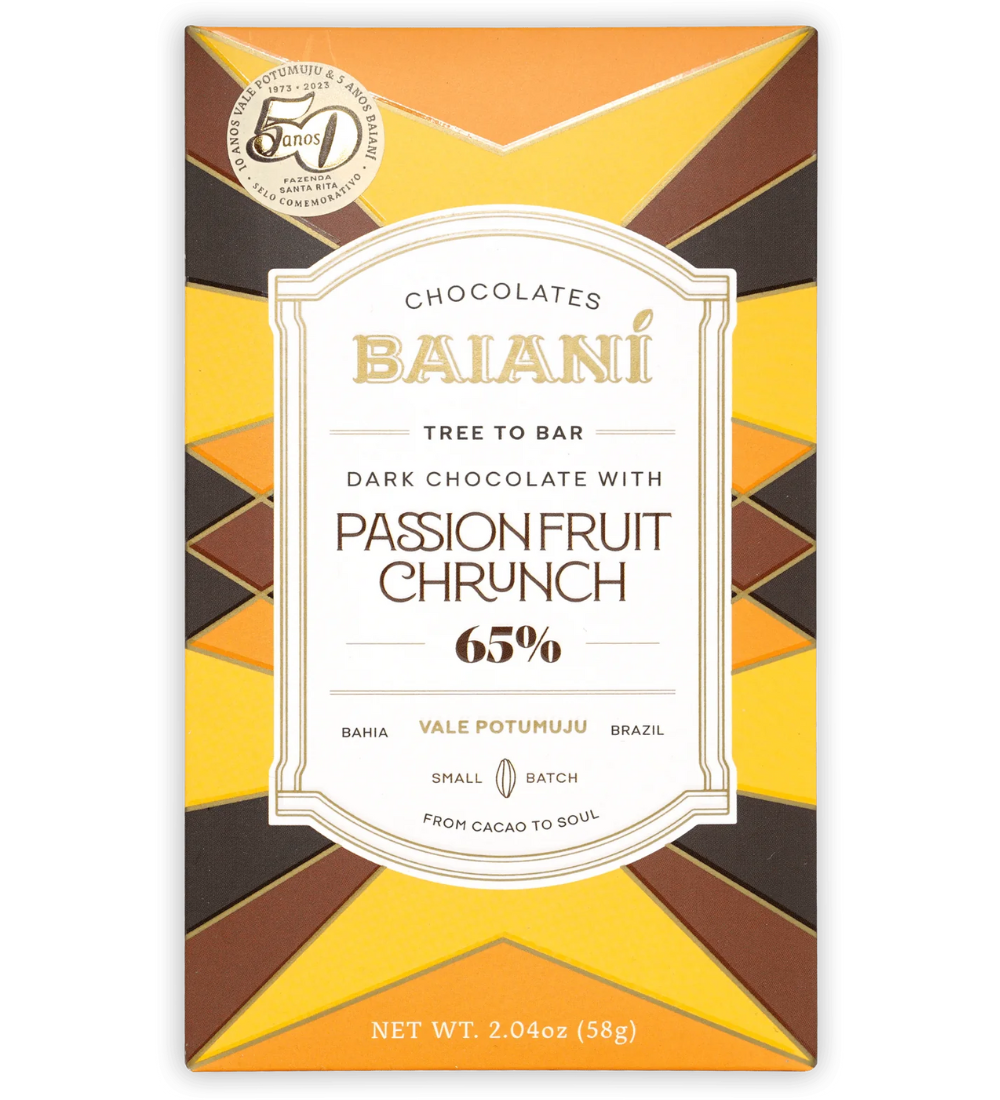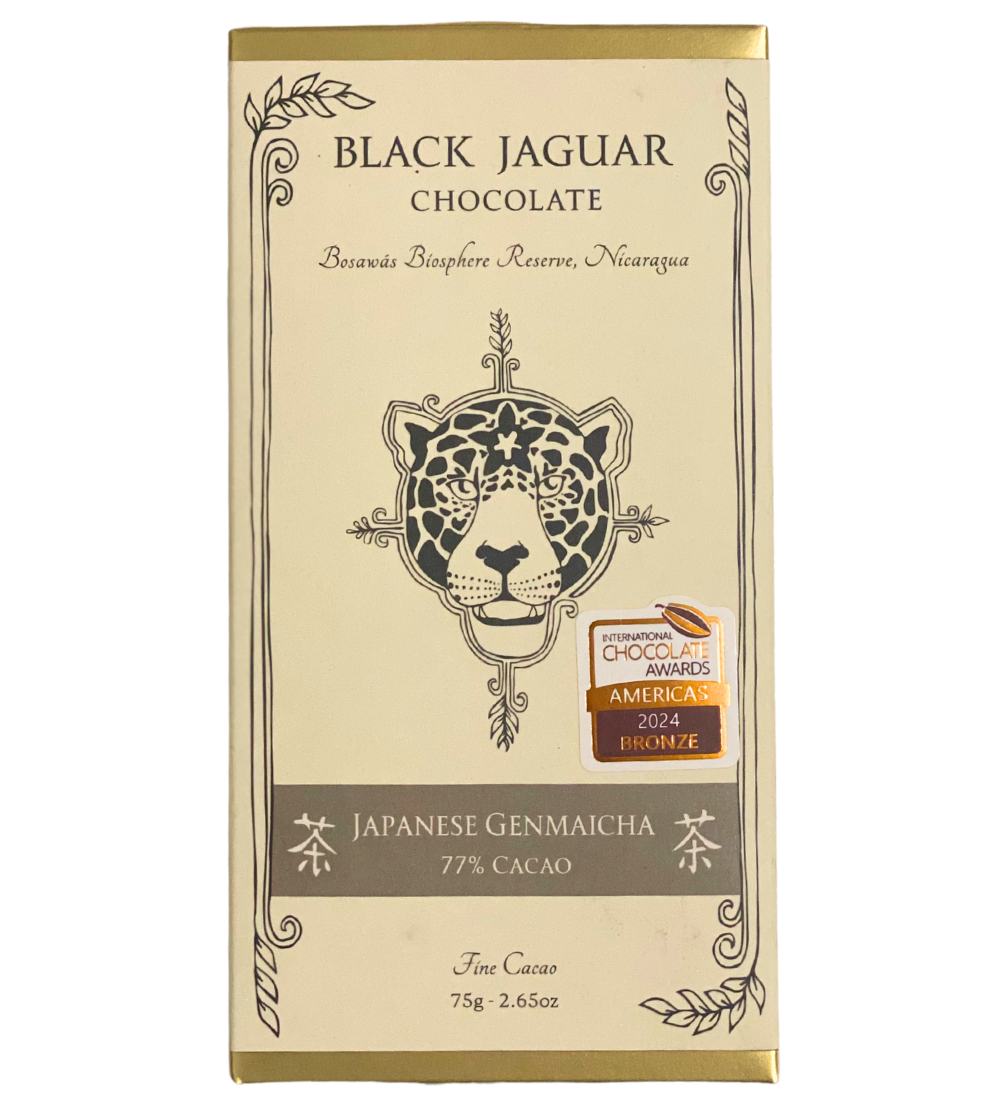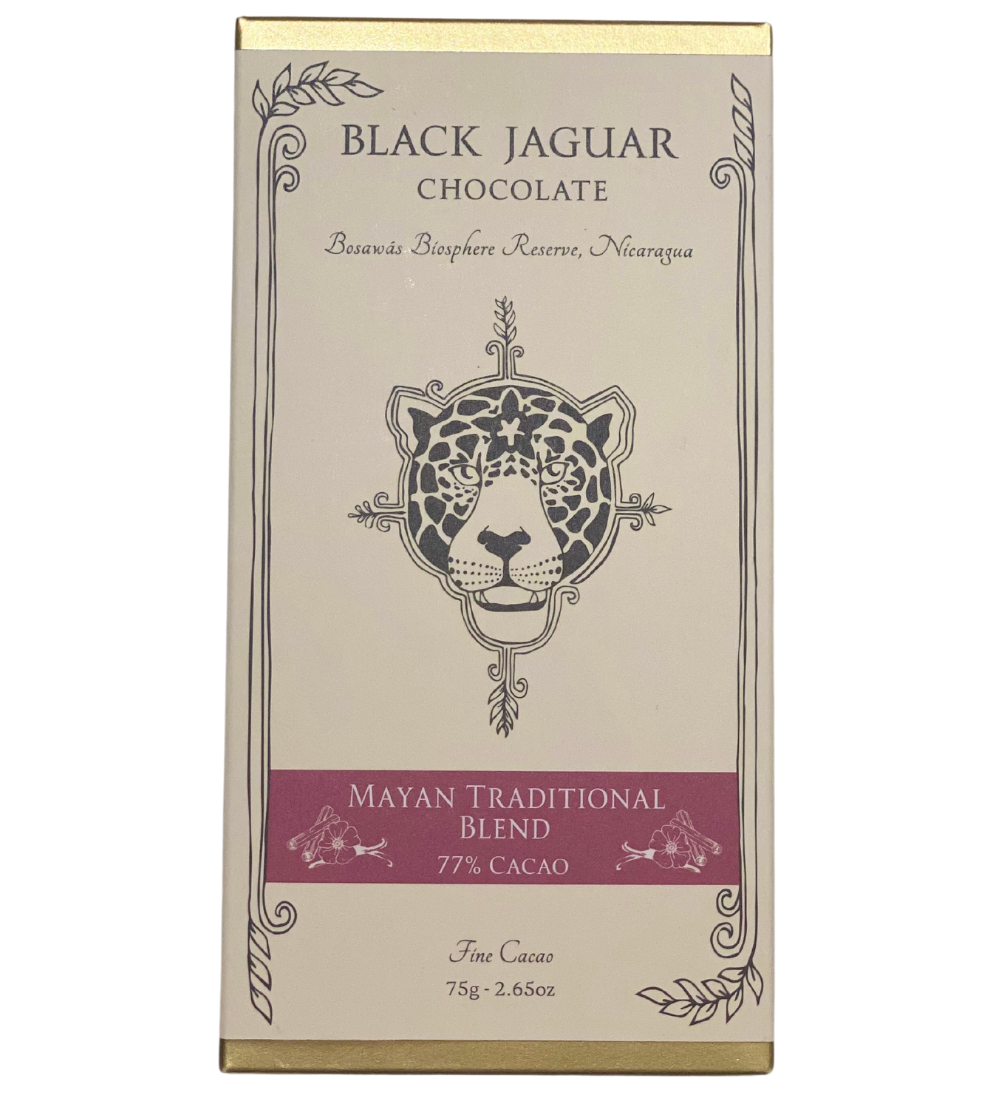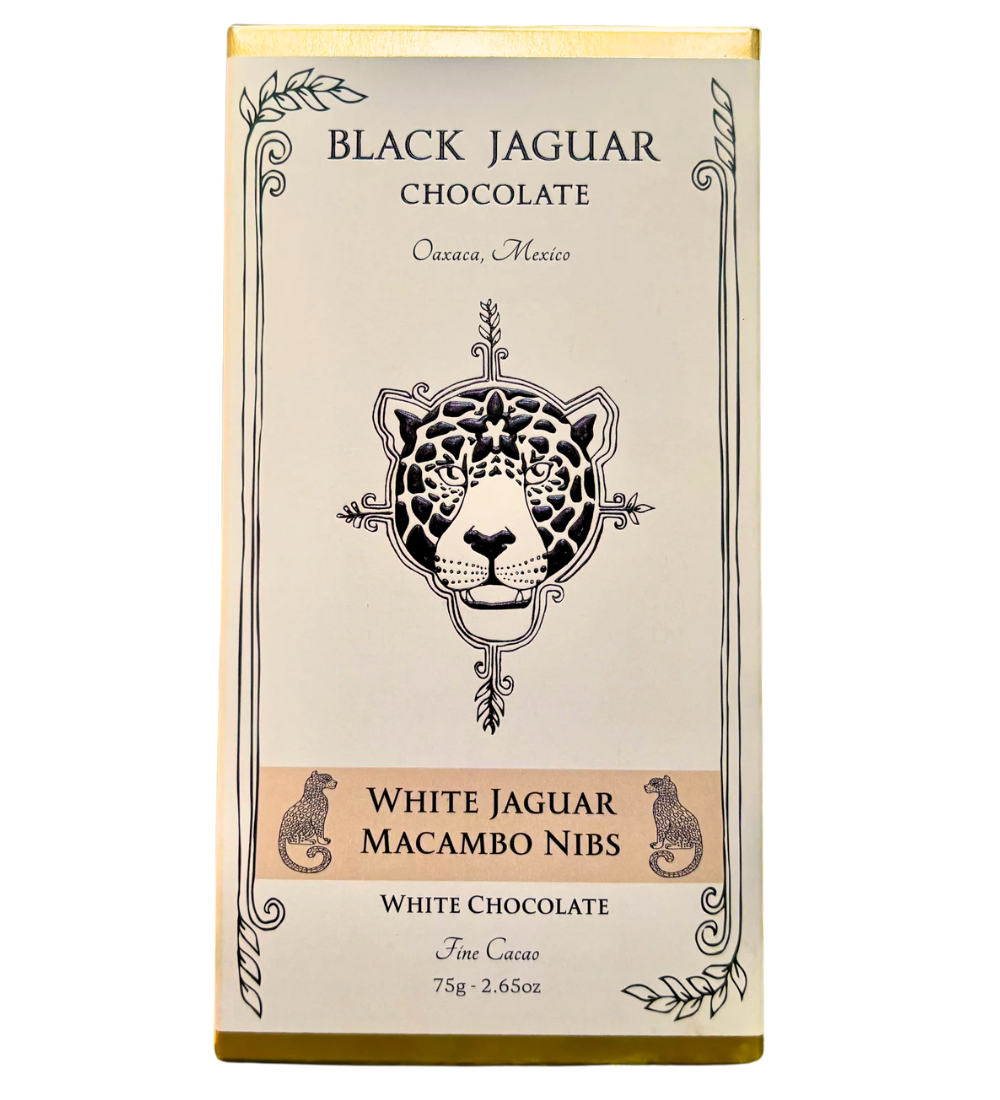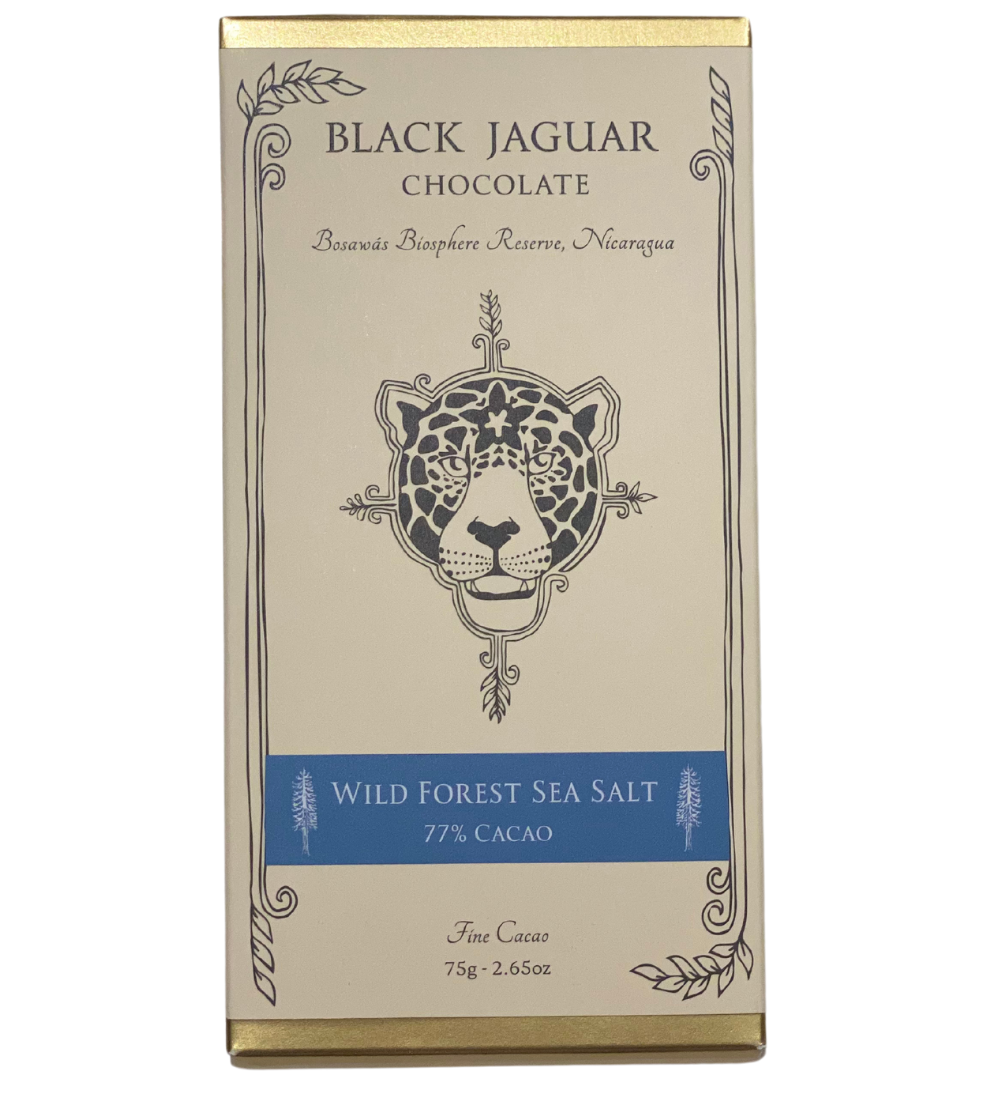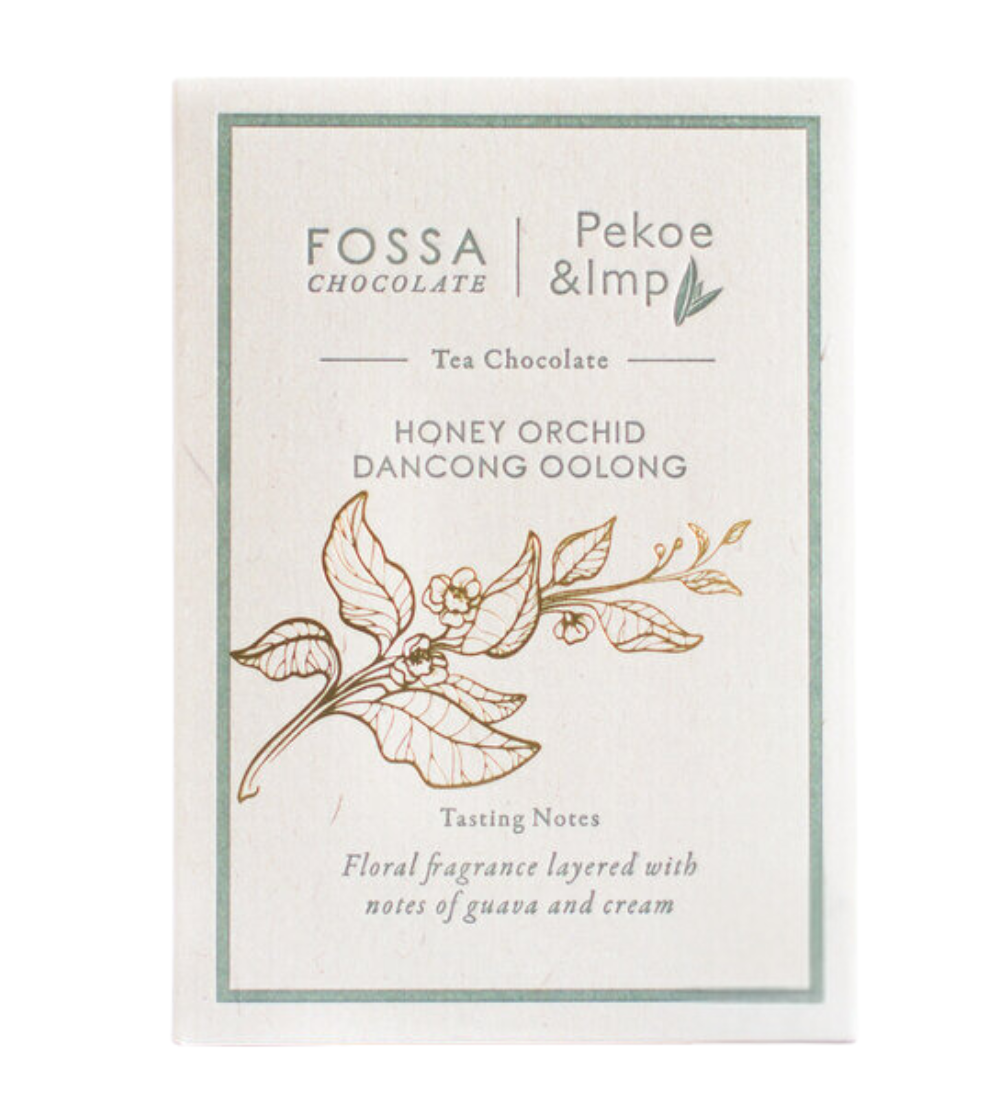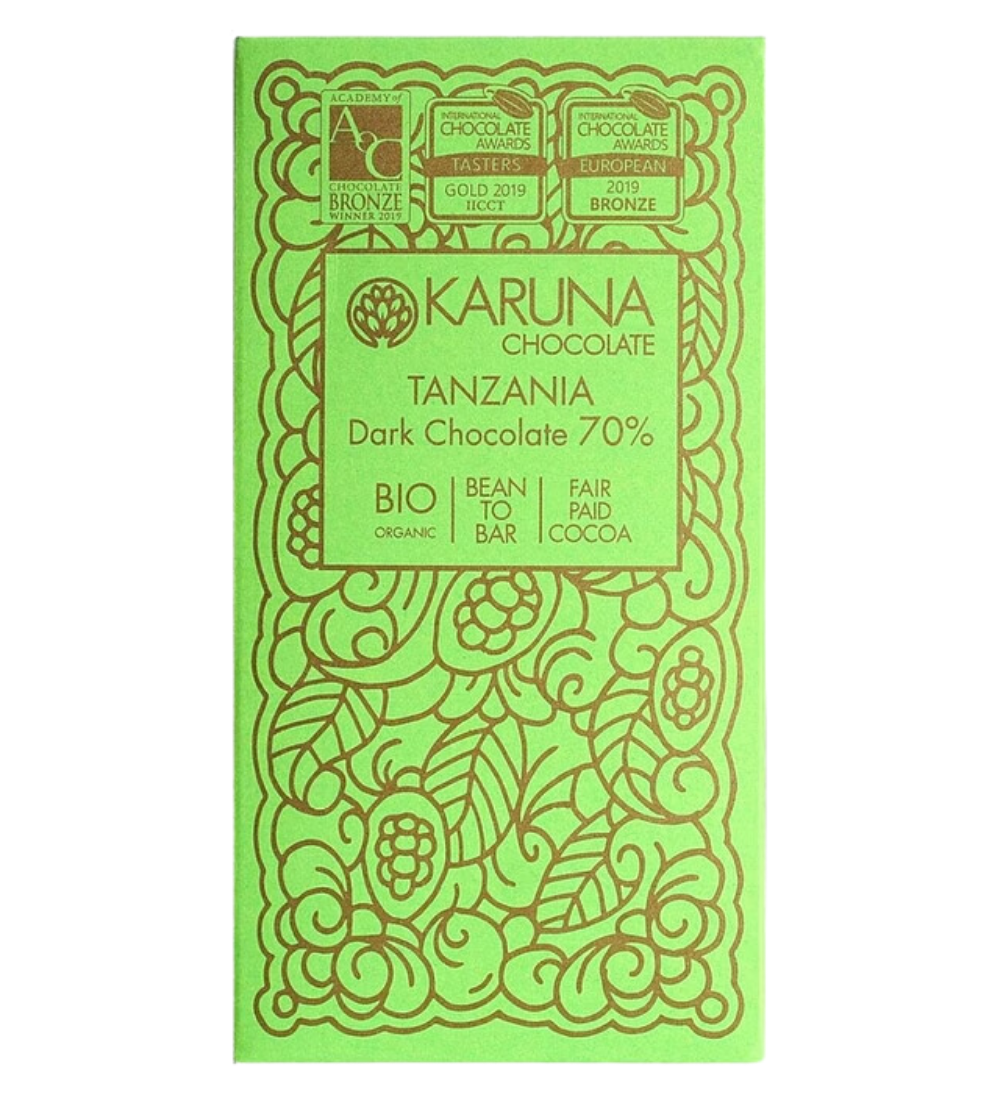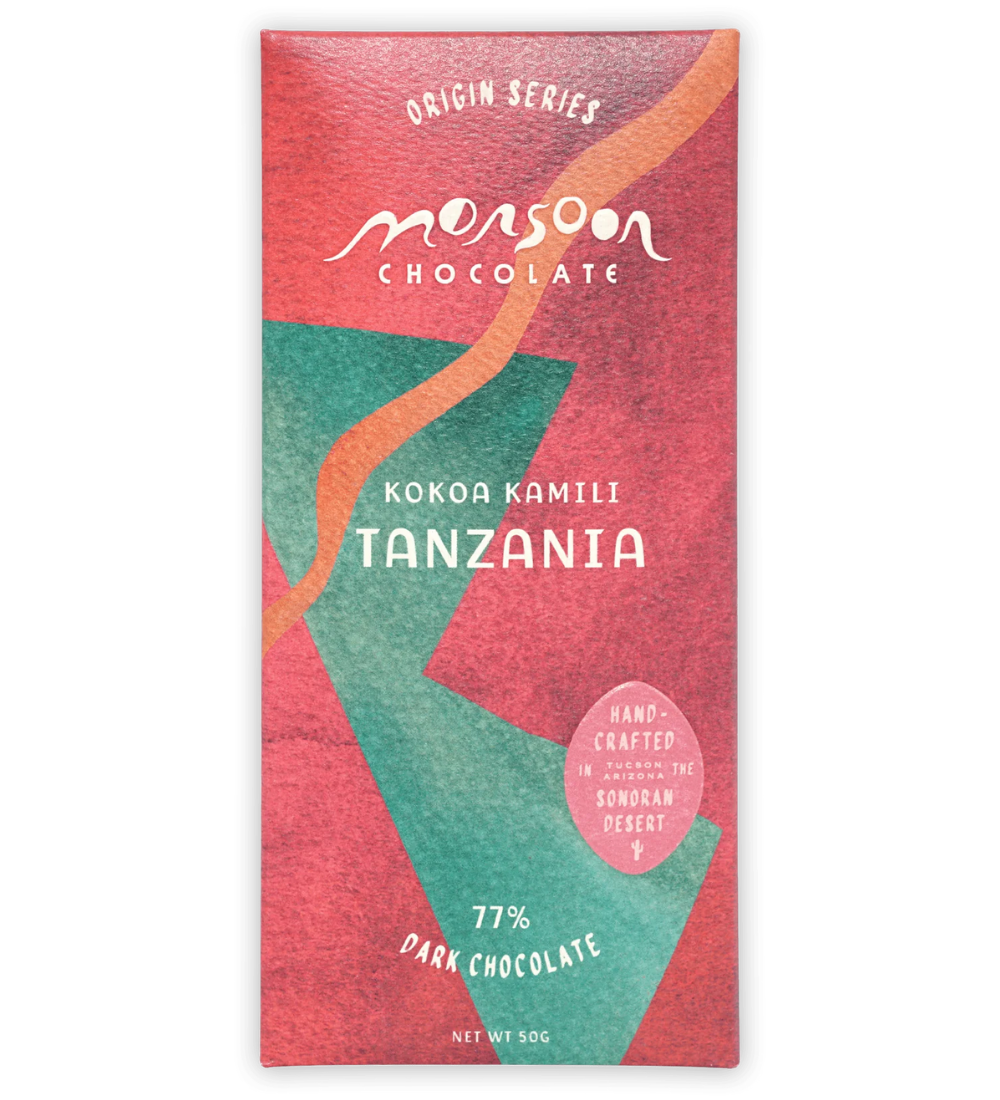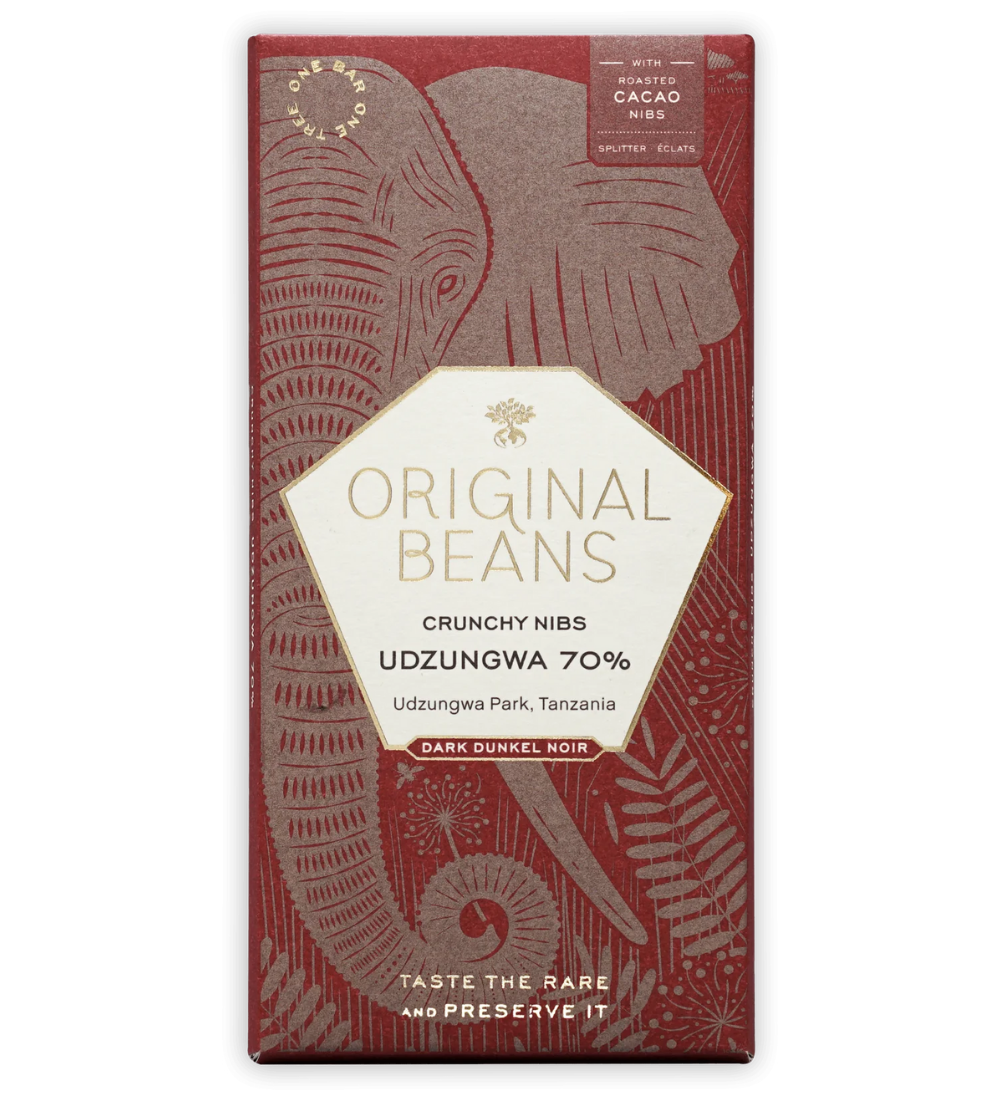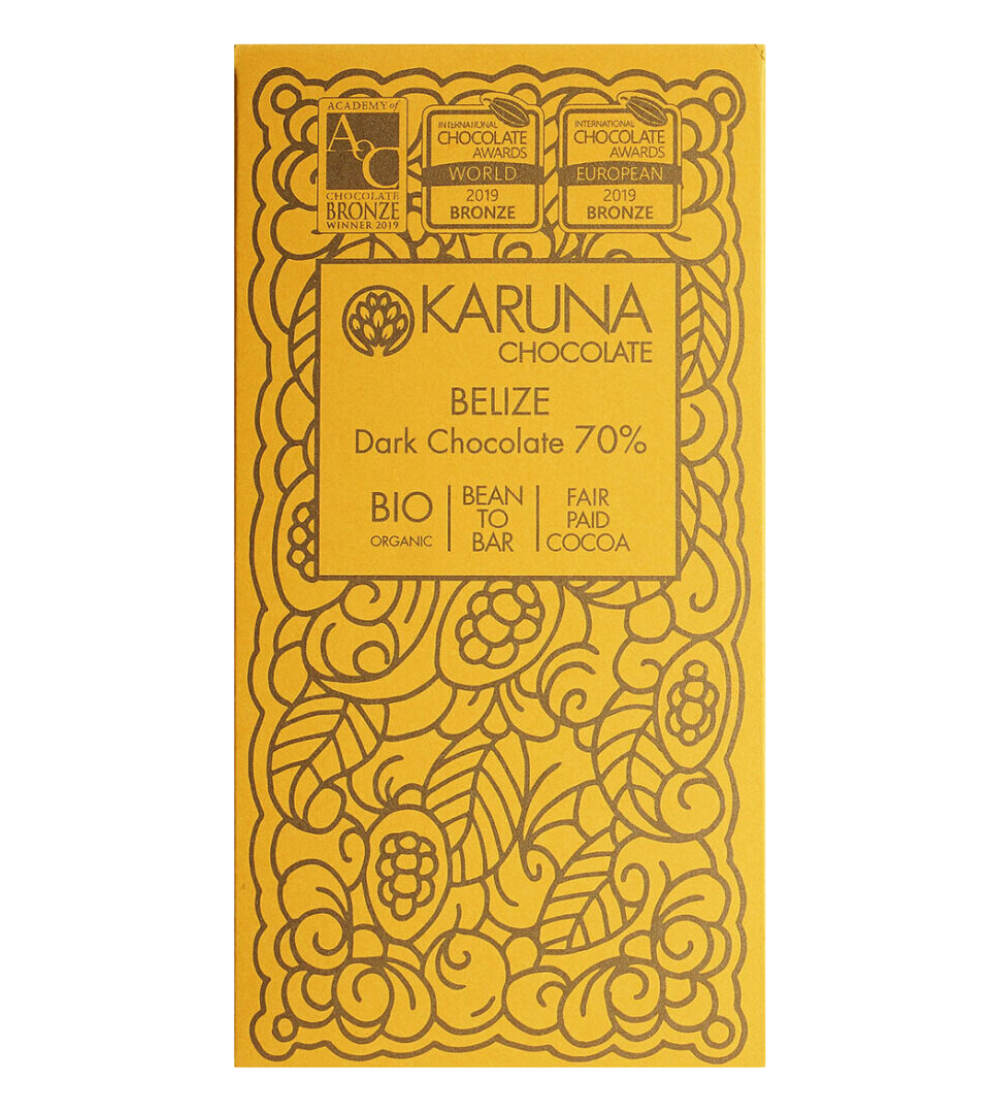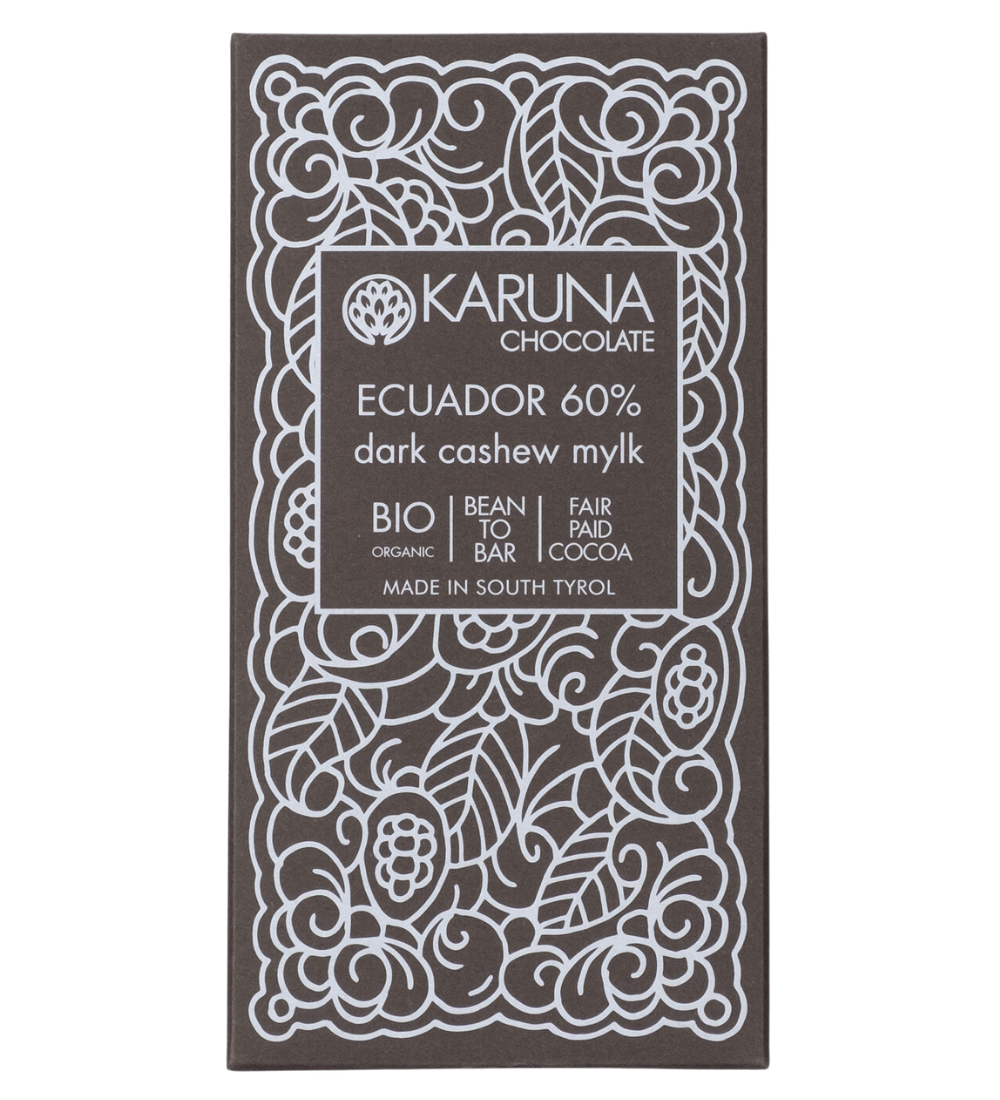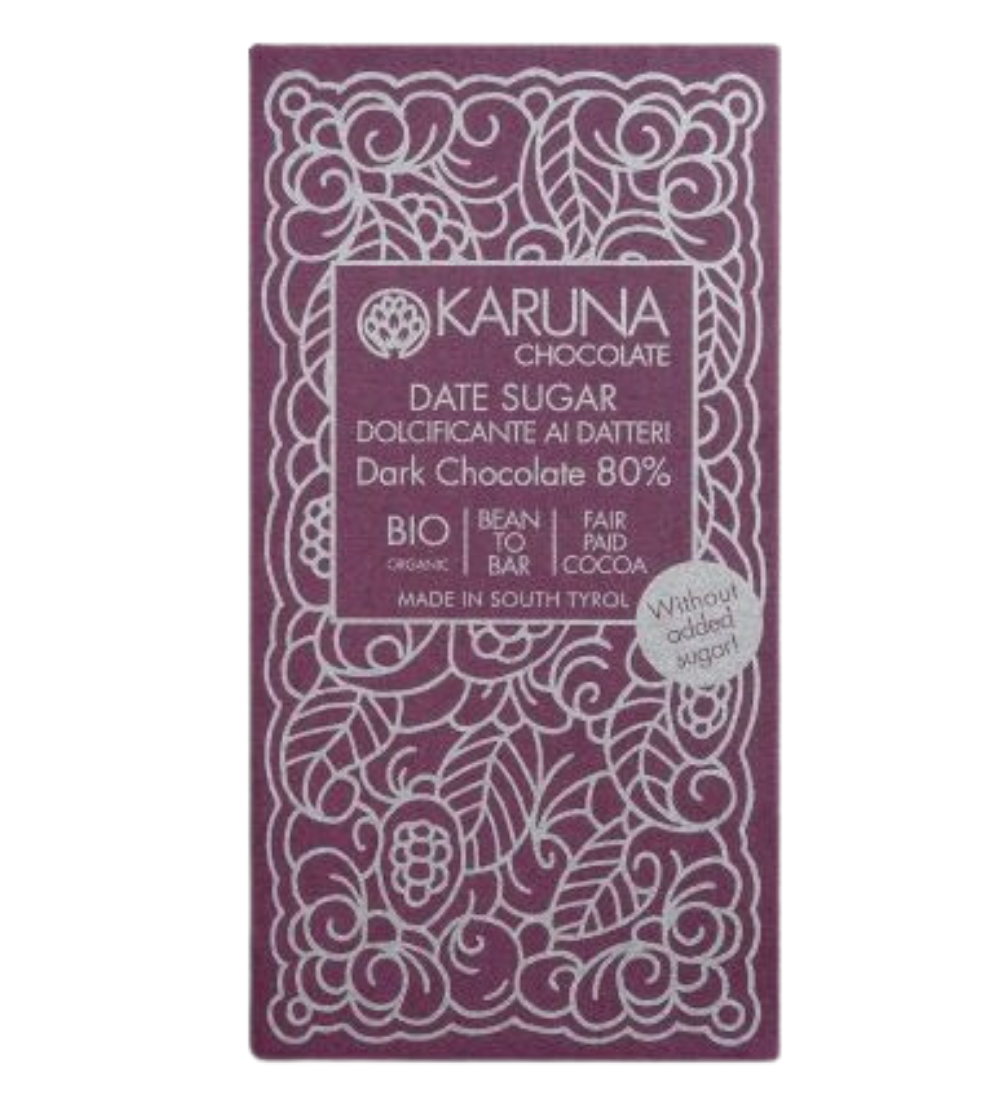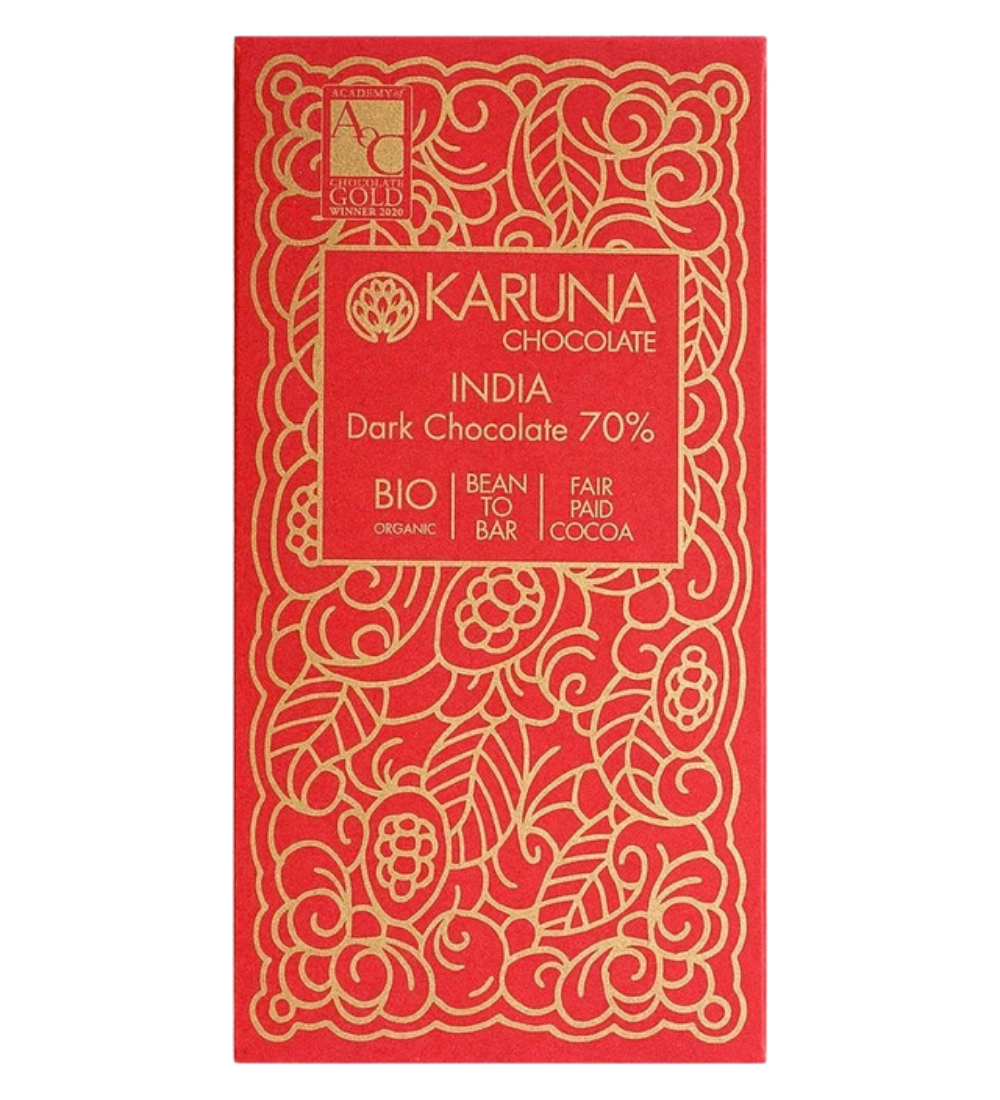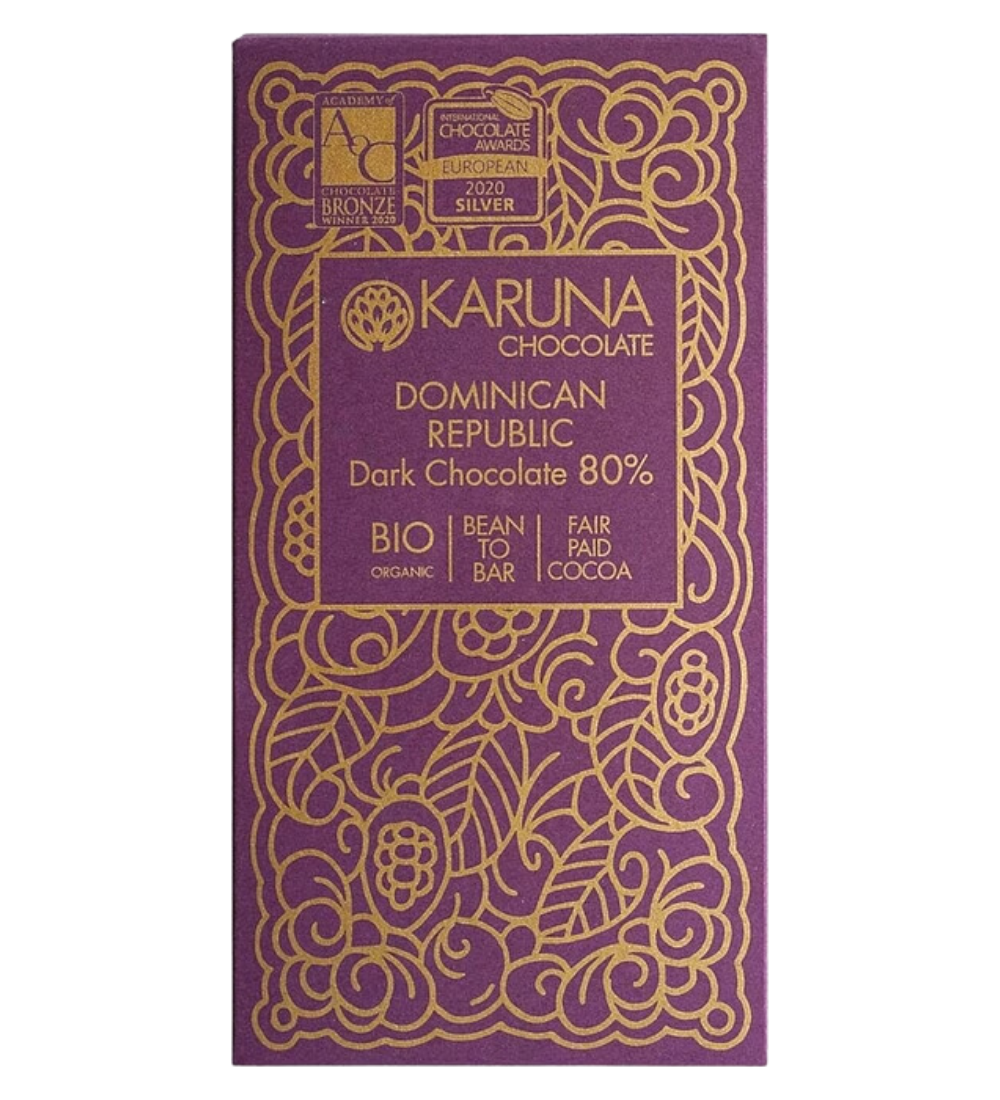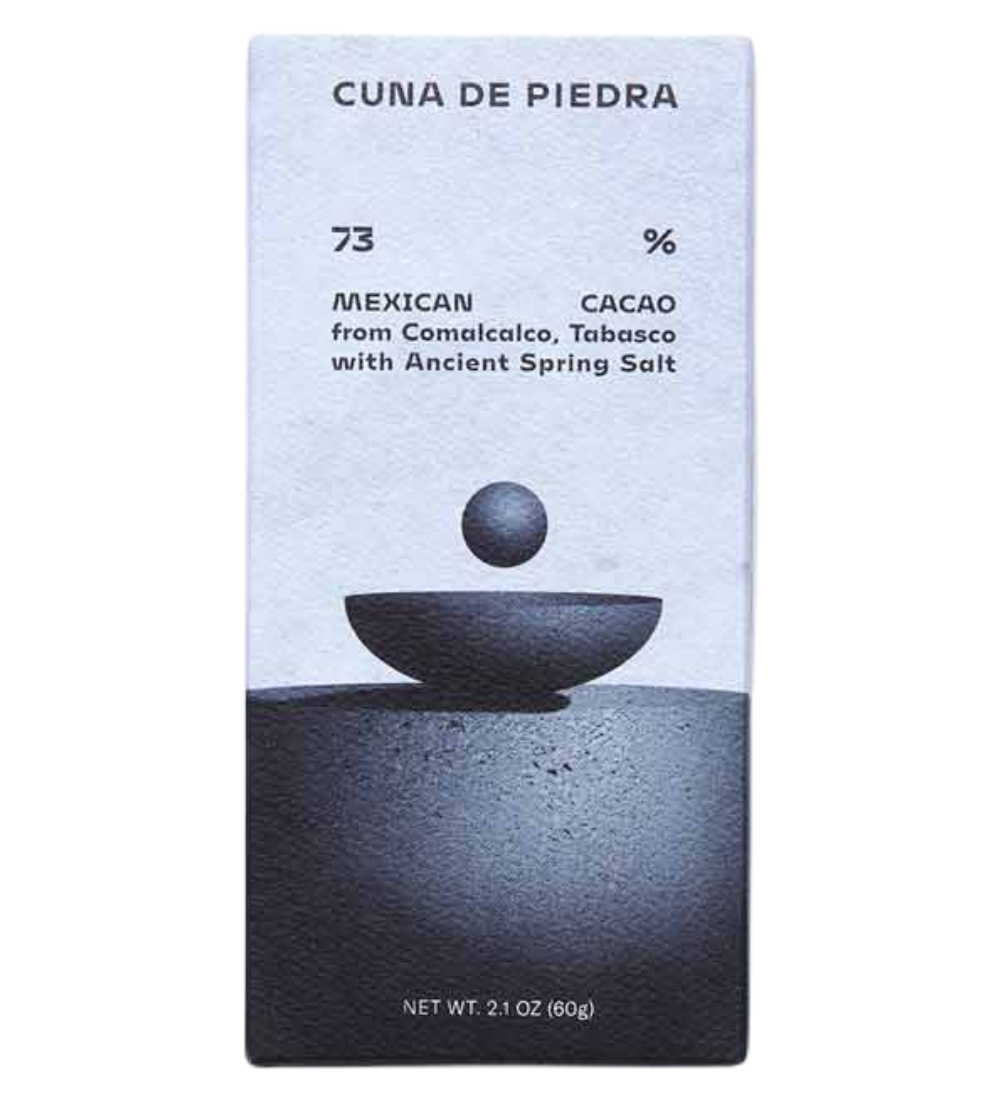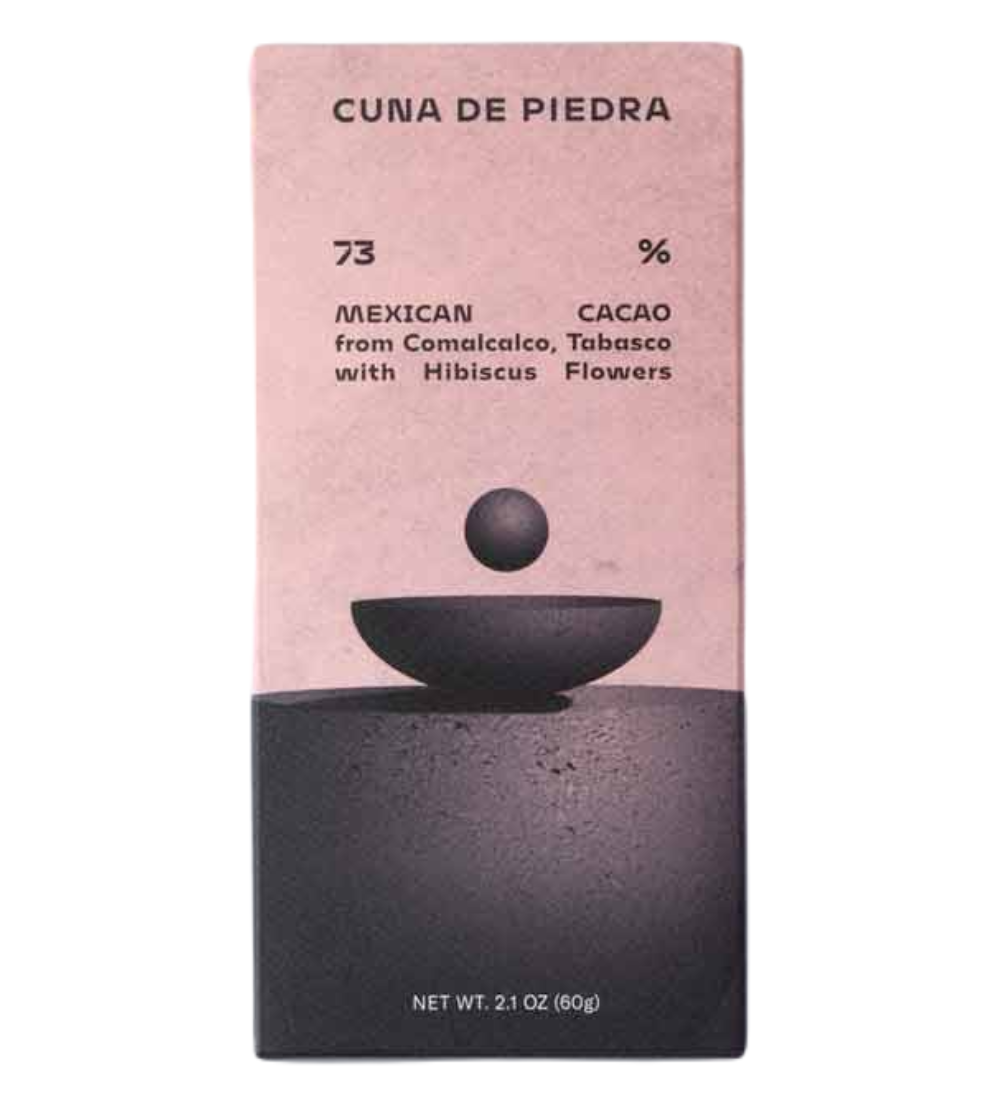Pinus cembra, known as the Swiss stone pine or Arolla pine, thrives in the mountainous regions of the Alps and Carpathian Mountains in Europe, including in South Tyrol where Karuna is based. The tree's edible seeds have been cultivated since ancient times and carry cultural significance in Alpine regions, where they've been traditionally used in folk medicine. This chocolate bar incorporates pine essential oil, extracted through steam distillation from the needles. Often valued for its refreshing fragrance and believed to offer warming and relaxing effects, here the oil lends a resinous, sap-like flavour with a pithiness reminiscent of citrus peel. Concerns about overwhelming or excessive intensity should be dismissed, as the roasty Tanzanian chocolate remains prominent, and the pine essence is subtly, tastefully integrated.
Karuna Stone Pine 70%
Cocoa Origin: Tanzania
Producer Country: Italy
Weight: 60 g
Adding product to your cart
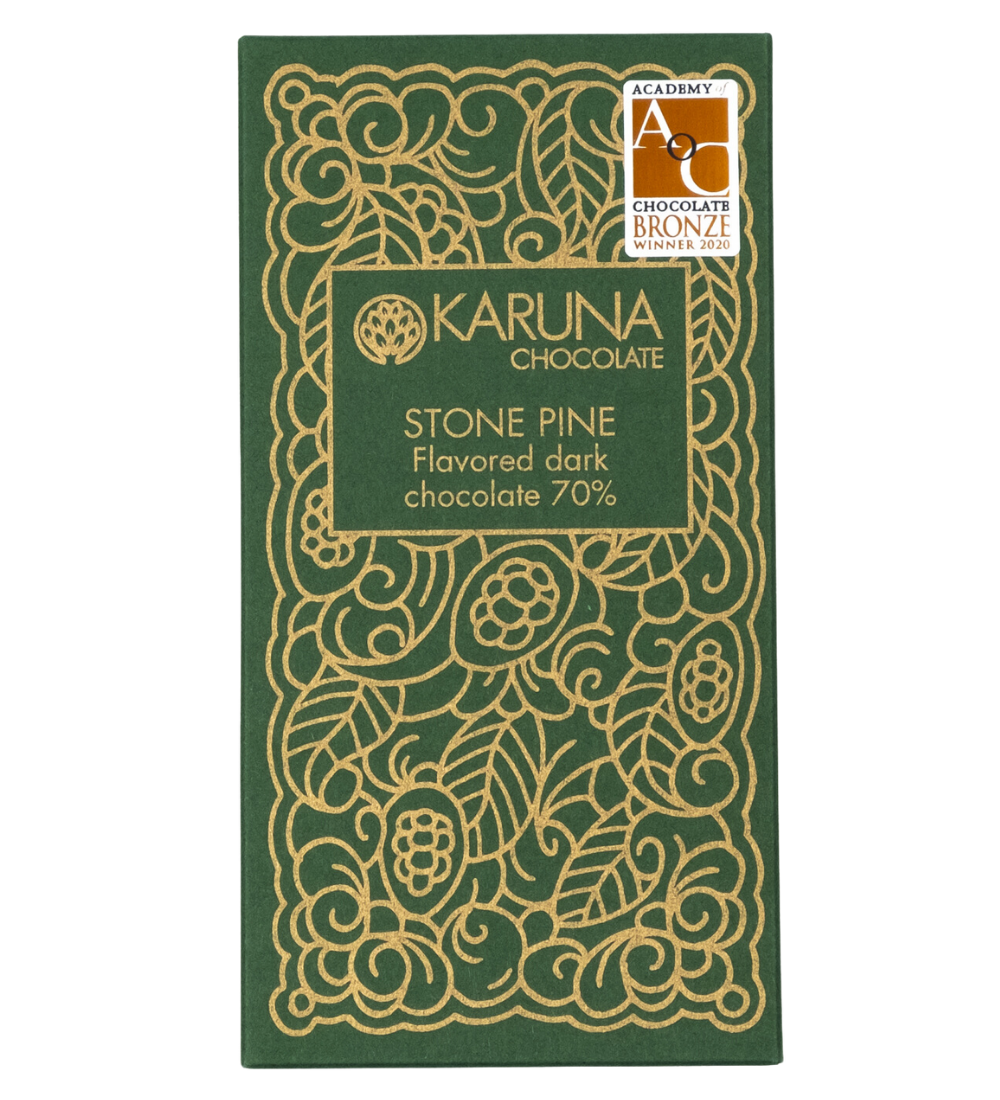
Karuna Stone Pine 70%
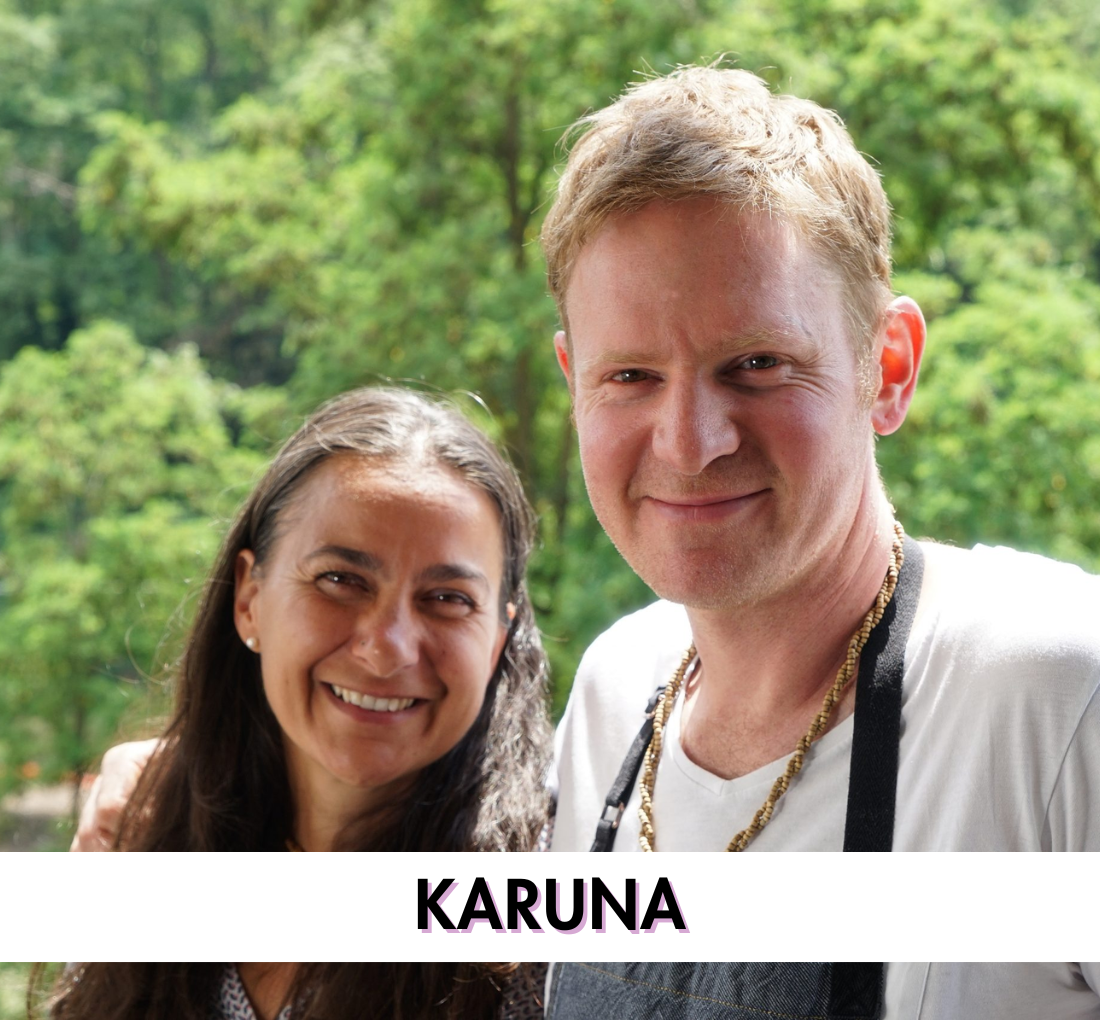
Katya and Armin, the couple behind Karuna, operate from the heart of the Italian Alps, but their journey with chocolate began in a very different place: southern India (an inspiration evoked in the beautiful shapes on their bars and packaging). There, they were introduced to locals growing and producing cocoa, which sparked their curiosity. They soon learned about hobbyists in America making single-origin chocolates by hand, a concept that reminded them of how the craft beer renaissance was driven by homebrewers, which had inspired so much innovation and creativity. Excited by the prospect of a new hobby, Katya and Armin began making chocolate using basic tools. Upon returning to Italy, they found only a few artisan manufacturers in Europe making the kind of chocolate they desired. Undeterred, they decided to follow in the footsteps of the homebrewers and create the chocolate they wanted themselves. Thus, Karuna Chocolate was born.
Shop More KarunaLocated within the Morogoro Region, the Kilombero district is situated in a vast floodplain, bounded by the Kilombero River in the southeast and the Udzungwa Mountains in the northwest, part of which is protected by a national park renowned for its diverse bird and primate species, as well as its unique population of savannah elephants. Unfortunately, increased deforestation has led to heightened human-elephant interactions, exacerbating the impact of elephant poaching since a majority of the district's inhabitants are subsistence farmers, cultivating maize and rice. Other economic sources are teak wood and sugar-cane plantations. The region is rising to prominence on the international scene thanks to the Kokoa Kamili Cooperative, which has become a world leader in transparency, fairness, and organic farming practices, with 99% of the area’s cocoa farming being organic. Their facility is located approximately sixty kilometers from the nearest tarred road or electricity, and ten to fifteen hours' drive from Dar es Salaam, Tanzania's main city and closest international airport, offering a glimpse of true rural African life.
